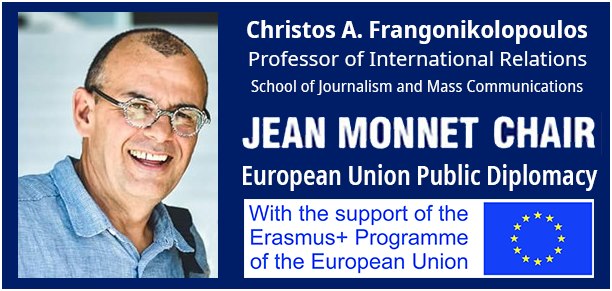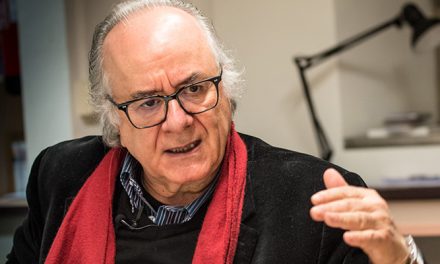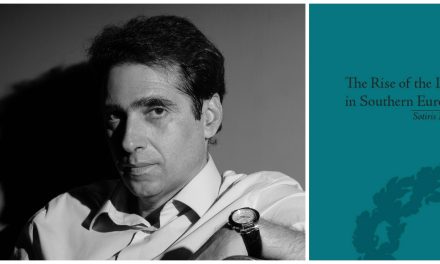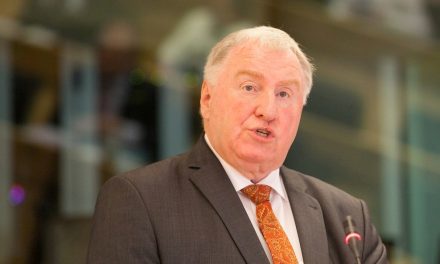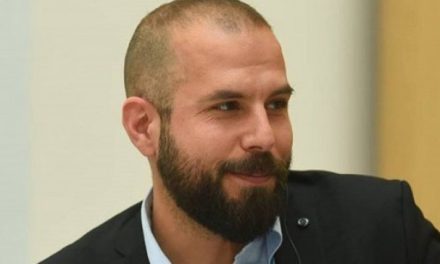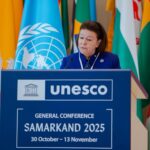The Aristotle University of Thessaloniki is dynamically participating in the “Study in Greece” campaign whose aim is to bring international students closer to Greece, by offering challenging and innovative fully English-taught programs (both undergraduate and postgraduate) in a variety of disciplines. The initiative is supported by the General Secretariat of Higher Education of the Ministry of Education and Religious Affairs and the General Secretariat for Greeks Abroad and Public Diplomacy of the Ministry for Foreign Affairs. Among others, special mention should be made to the “European Public Diplomacy” course, the first to be taught in a Greek university at postgraduate level, forming an important part of the School of Journalism and Mass Communications Department’s English language Master’s program on “Digital Media, Communication and Journalism”, especially for the second pathway/specialization on “European Journalism”.
Greek News Agenda⃰ spoke to the program’s Director and Holder of Jean Monnet Chair since 2016, Professor of International Relations Christos Frangonikolopoulos** who gave an insight on the program’s learning objectives and comparative advantages. Professor Frangonikolopoulos also shared his perspective on Greece’s 40 years course in the EU and the EU’s role in a changing world, thus contributing to the public dialogue that was recently launched in Greece and throughout Europe, in the framework of the Conference on the Future of Europe.
Why should a potential student choose the Aristotle University’s MA program on “Digital Media, Communication and Journalism”? What are its comparative advantages, taking into consideration the plethora of similar study programs around the world?
The School of Journalism and Mass Communications has in recent years repeatedly featured among the top 50 Media/Communications Schools of Europe and is a member of the European Journalism Teaching Association. Its English-taught MA program builds on its 25-year long experience in training international students in its tailor-made English-taught program for Erasmus students. Above all, it is based on the School’s 30 year-long success in promoting learning through theory-building, cutting edge technical skills, and professional training, and reflects its steadfast commitment to innovation, excellence, interdisciplinary education, and international outlook.
What makes our Master’s program relevant is the consistent integration of the students’ study, skills, and projects to the real world. Innovation and thoughtfulness have always been the only route for students, but I can’t think of a more critical time than now, in our highly complex, risk-ridden, globalized, and networked societies, for all thinking to become more methodical, reflexive, and innovative. We look for students who are eager to take on more challenges, to learn more about themselves and about the world, to reach their full potential. Our faculty, all active scholars and researchers, are committed to helping students succeed in their pursuits. Together we work to make each student’s experience at Aristotle University a rich and fulfilling one that broadens his or her intellectual and professional horizons.
 You have been awarded twice a Jean Monnet Chair on European Journalism Integration (2016-2019) and European Public Diplomacy (2020-23). Could you provide insight into the Jean Monnet Chair on European Public Diplomacy, regarding the learning objectives of the course and/or other activities planned as part of this prestigious position?
You have been awarded twice a Jean Monnet Chair on European Journalism Integration (2016-2019) and European Public Diplomacy (2020-23). Could you provide insight into the Jean Monnet Chair on European Public Diplomacy, regarding the learning objectives of the course and/or other activities planned as part of this prestigious position?
During the last decade, the European Union is often misunderstood and seen in negative terms. The crisis of the Eurozone, the refugee crisis, and the Covid-19 pandemic, exacerbated the criticism on the usefulness of European integration, contributing to the development of a significant gap between what the EU has accomplished and how the wider public, internally and externally perceives it. In fact, given that most of the complex and interlinked crises that trouble the EU have not been resolved, the EU and its members are not only characterized by fragmentation, distrust, increased divergence, social and political cleavages, but also by the inability to fairly balance national interests and frustration with today’s Union.
Bearing that in mind, the Chair on European Union Public Diplomacy has launched a teaching and research program exploring and identifying how to use Public Diplomacy to increase connections and shape perceptions in and outside the EU. The Chair is addressed mainly to the School’s undergraduate and postgraduate students but is also open to students of other Departments of the University.Τhe Chair focuses not only on theoretical issues or descriptive accounts of EU PD, but also pays attention to practical issues and skills that are in short supply.
Through publications, workshops, seminars, and conferences, the Chair brings together students, academics, journalists, and civil society representatives to (a) investigate the role of the media and civil society in contemporary and future EU PD, (b) discuss and explore how to reshape EUPD through regular and informed public dialogue, (c) explore how EUPD can invest in analysis, synthesis and dissemination by creating hubs for discussion, argumentation, counter-argumentation and feedback, (d) develop a reflective process that helps to understand the shortcomings and deficiencies of EU policies, and (e) explore how PD can be expanded to become the means for the improvement of the EU’s domestic and foreign policies.
The past decade has seen major and unprecedented shifts in international politics. In your view, where does Europe stand, today, in a changing world?
The EU has championed multilateralism as the core of its approach to global politics. However, not only do member states disagree on global security and foreign policy issues, but the EU also has to face challenges to the basic philosophy and practices of the international liberal order, like those posed by Russia, China, and populist leaders such as Trump. The EU appears to be vulnerable and weak in the “battle of narratives” regarding the global order. Both China and Russia have stepped up their interference in Europe and its neighborhood to attempt to portray the EU – and democratic systems more generally – as too weak and too slow to contain the pandemic. These efforts fall on fertile ground as the financial crisis, the political controversies sparked by large-scale migration, and the covid-19 pandemic have shaken the core of public confidence. This reality, however, should also provide the opportunity for the EU to work towards a global order that is in line with its strategic interests. This requires not only working on strengthening multilateralism but also on policies that allow the EU to provide stability in its wider periphery, to uphold and protect global trade, to deal more effectively with migration, and to set global standards for emerging technologies.
Pandemics, in particular, have traditionally had a pronounced effect on world politics. From your perspective, what are the main challenges lying ahead for the EU in the post-covid19 era?
The covid-19 pandemic has clearly demonstrated that interdependence is and will remain a central pillar of global politics and European integration. More and enhanced cooperation among member states, citizens, and the institutions of the EU will facilitate a debate and effort to apply higher standards for the protection of the environment and other global public goods (such as human rights, human security, public health). In a world where the borders between what can be defined and understood as foreign and domestic policy are very difficult, the EU with its economic power and global regulatory powers is not only in a position to deal with today’s most urgent challenges but is also in a position to develop an extrovert and outward strategy.
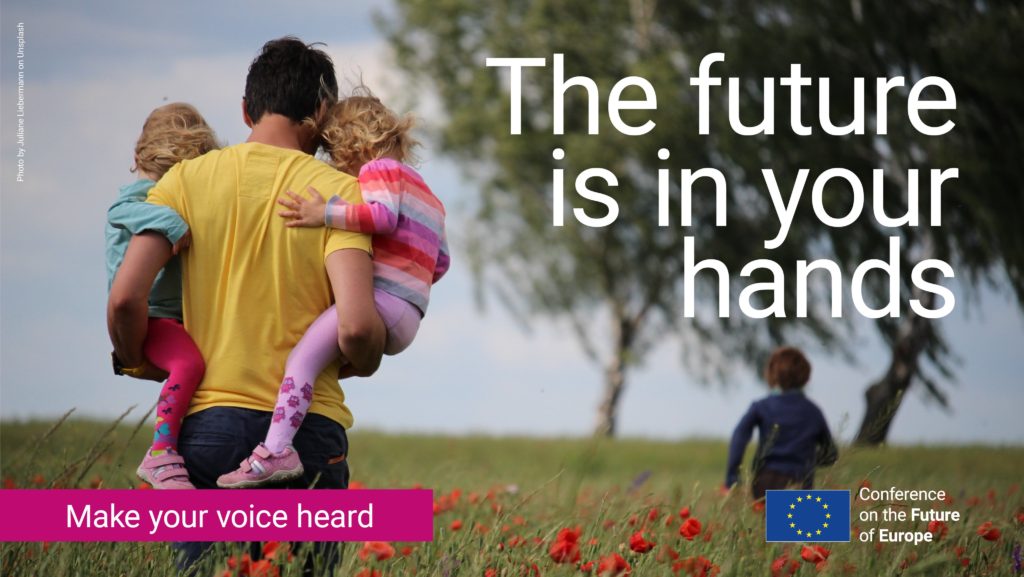 The Conference on the Future of Europe was recently launched. What is to expect from this promising initiative?
The Conference on the Future of Europe was recently launched. What is to expect from this promising initiative?
The Conference on the Future of Europe underlines that the success of the EU will not only depend on its ability to enhance its engagement in global politics, but also on its ability to reinvent its democratic processes. The EU’s problem in trying to convince, internally and externally, about its positions/policies, is not only related to the content, but also to the way the institutions communicate the content. Its strategic communication is mainly one-sided, focused mainly on the need to provide information. Rationality and promises of a positive future do not sell. And rightly so, as the deep economic, social, and technological transformations of the 21st-century touch on and are related with sensitive questions of identity and community. If the EU desires to assist its citizens to adapt to a rapidly changing world, it can only resolve this disconnection by facilitating support for difficult and collective political decisions.
Greater benefits can be reaped if a discursive approach to political debate and participation is employed. The political debate needs to focus on the principal issues of global politics and engage the public in an open debate, with the aim to communicate standpoints, but also listen and reply to potential counter-arguments and, in some cases, even incorporate some of them into final policies. In the absence of discursive procedures, policies are not thoroughly explicated, and there is an accountability, transparency, and integrity deficit that makes EU politics more obscure and problematic. Discursive procedures can be helpful in three directions: (a) getting across to the broad public arguments and ideas, (b) gaining a deep mutual understanding through the study of the perspectives, and (c) receiving potentially helpful insights.
The use of new technologies can be very helpful in the conduct of such strategic discursive processes in a number of ways. The creation of official sites sponsored fora where citizens of the EU can express their opinions and comments and ask critical questions that will receive replies is one option. Second, online interviews with officials can be organized. This way, citizens would see their queries answered and official policies fully explained. These initiatives could bear several positive effects: (a) they are by themselves a trust-building measure, (b) they allow dialogue to flourish, and (c) shortcomings and contradictions of current policies can be spotted and scrutinized; officials can learn by the exchange of ideas, which may lead to the improvement of policies. At the same time, the governments and institutions of the EU should co-operate closely with NGOs and academic institutions whose activities center on these issues. Creating open access networks of dialogue amongst member states, the institutions of the EU, NGOs, and the public is conducive to profound discursive processes that can help the definition and framing of the parameters of the problem and the designation and implementation of responding policies. In a nutshell, discursive public procedures are an indispensable foreign policy tool for the twenty-first century. They aim to adjust to the changes that have taken place in the international system in the last decades and focus on addressing the public and creating solid partnerships with the less appreciated and reckoned with global actors, the citizens of the EU.
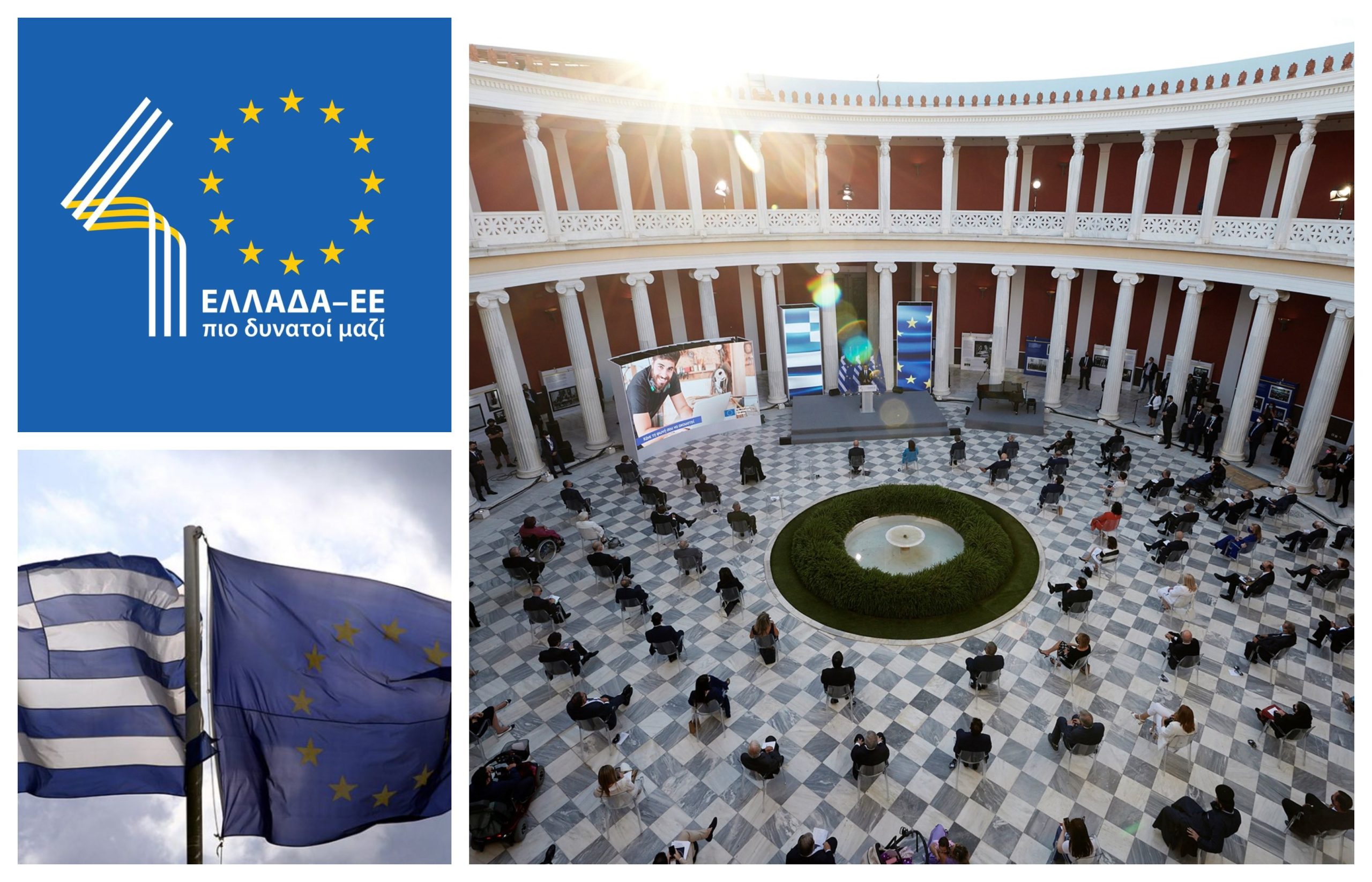 2021 marks the 40th anniversary of Greece’s accession to the EU family. In your opinion, what is the particular relationship between Greece and Europe; what were the main lessons learned so far – what are the ways forward and prospects ahead?
2021 marks the 40th anniversary of Greece’s accession to the EU family. In your opinion, what is the particular relationship between Greece and Europe; what were the main lessons learned so far – what are the ways forward and prospects ahead?
Greece’s relation and position towards the EEC/EU is complex characterized by many fluctuations and contradictions, determined by internal political developments, the strategies, and perceptions of political leaders, as well as the trends or transformations of European politics. Beginning in the 1970s, when Greece applied for membership in the EEC, a strong anti-European narrative developed, which projected the country as a “victim” of the periphery. This narrative did not succeed in becoming dominant. Following the end of the Cold War, and despite the growing support to a conservative anti-Western/anti-European position expressed by a group of religious/political figures in the 1990s, 60+% of Greek society supported Greece’s participation in the EU. This pro-European position was associated with the economic development, increasing consumption, and affluence that was made possible with the funds injected into the Greek economy by the EU. The debt crisis changed this condition. By 2014, according to the Eurobarometer, only 33% viewed Greece’s participation in the EU positively. It was only in 2019 that support for the EU returned to the level of the previous decades. The vast majority of Greeks, however, maintained that the bailouts damaged, rather than helped the country’s growth and that Greece could have overcome the crisis on its own, without aid from Europe. What does this indicate? It indicates that perceptions of the EU are ambivalent and cautious. This becomes all the more important when considering that the consequences of the pandemic may end up in consolidating new cleavages, with tremendous repercussions, within the political system and society of Greece.
It is clear that Greece can no longer afford to move forward with such misconceptions. Especially, when considering the challenges facing the EU, as well as the debate on the future of the EU. To do so Greece needs to: [1] to recognize its position within the EE as well as the contribution of the EU to its development, (b) decide how the country will deal, comprehend and interpret its past and the contradictions associated with the dominant “underdog” political culture, (c) decide how identity conceptions and roles within the EU must be redefined in light of new regional and global problems. The Prespes Agreement and the resolution of the conflict with Northern Macedonia indicate that Greece desires to emerge and operate as a pillar of stability and cooperation for the EU. A powerful and stable Greece requires a powerful and stable EU. Greece should invest in a strong and cohesive EU, emphasizing the need for: (a) the further integration of the economic and financial union, (b) the enhancement of the EU’s social policies, (c) the promotion of a more cohesive European defense policy, (d) the promotion of a more complete migration/refugee strategy, with emphasis on fairer allocation and the adoption of a common asylum system, (e) the treatment of the democratic deficit and (f) the revision of the Treaties and their replacement with a single constitutional treaty that is understandable by the citizens of the EU.
*Interview by Eleftheria Spiliotakopoulou
**Christos Frangonikolopoulos studied Politics and Government (BA Honors) and International Relations (PhD) at the University of Kent at Canterbury (England). He has worked as a diplomatic newspaper correspondent (1995-2003) and advisor to the Greek Parliament (1997-2003). In 2004-05 he also worked for public television. He combines a significant research output with practical experience. His research interests and teaching have an interdisciplinary character, combining international relations and European Integration with European Journalism. He has published, co-published, edited, and co-edited ten (10) books in Greece and abroad, and academic articles in over 40 edited books and peer-reviewed journals.
Professor Frangonikolopoulos is a Holder of Jean Monnet Chair since 2016. Jean Monnet Chairs are awarded through a highly competitive process by the European Commission through the EU’s Erasmus+ program. The position is awarded based on promoting excellence in teaching and research on EU studies, fostering debate around European issues, encouraging active citizenship, and disseminating knowledge to the wider public, critically and objectively.
MA on “Digital Media, Communication and Journalism” AT A GLANCE
• Total amount of ECTS required to complete the program: 90 ECΤS
• Application and Admission Process for Academic Year 2021-22: on-going
See also on GNA:
- Study in Greece: International Master’s Programs taught in English or visit the “Study in Greece” portal
- 40 years of Greece’s membership in the EU
- Quo Vadis Europa past interviews
For more info about the Conference on the Future of Europe:
- Visit the EU’s official micro-site, and the Greek Ministry of Foreign Affairs’ specially designated digital platform, Facebook page, and Twitter account.
- Read also, the Alternate Minister of Foreign Affairs Miltiadis Varvitsiotis’ address at the celebration for the 40 years of Greece – EU and the Conference on the Future of Europe (Zappeion, Athens 27.05.2021).
E.S.
TAGS: EU INSTITUTIONS | EU POLITICS | GLOBAL GREEKS | INTERNATIONAL RELATIONS | MODERN GREEK HISTORY | STUDY IN GREECE

